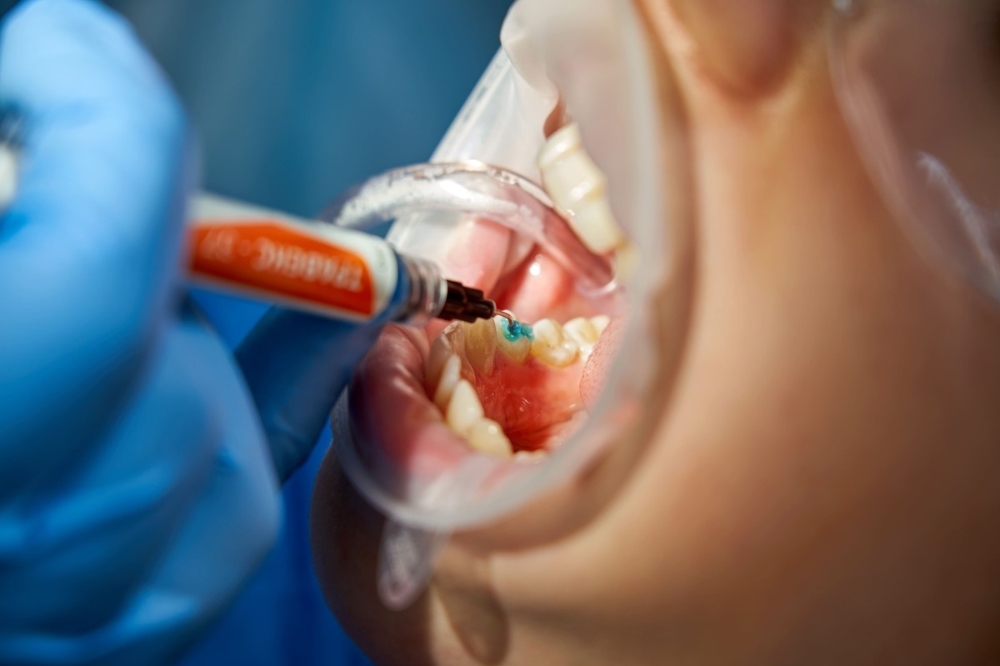
Ever thought about what happens during a dental filling? If you know what to expect, it can help with your nerves when visiting a new dentist in Westminster. You can feel less nervous and more comfortable during your treatment knowing what is going to happen during the process.
Dental fillings are common for the treatment of cavities, certain minor decay, and damage to teeth. Understanding what happens during, about the preparation, and what happens for care can ease the stress of your trip to the dentist.
How Do Dentists Prepare for a Dental Filling?
Prior to completing a dental filling, your dentist will first assess your teeth; they may even take an X-ray, if necessary. The dentist will also clean the area of decay and/or bacteria to delay further cavity development. In most cases, local anesthesia can be used so the treatment doesn’t feel like anything at all.
As with any medical or dental profession, a visit to the dental clinic in New Westminster will ensure they use modern tools and materials, which in turn affords you better longevity or comfort.
What Materials Are Used in Dental Fillings?
New Dental fillings in Westminster can be made from various materials:
- Composite resin: Tooth-colored, blends naturally with your teeth
- Amalgam: Durable silver-colored material for back teeth
- Ceramic: Long-lasting and stain-resistant, often used for larger cavities
- Gold: Extremely durable but more costly and noticeable
Your dentist will recommend the material that best suits your tooth’s location, the size of the cavity, and your aesthetic preference.
What Happens During the Filling Procedure?
Once you are numb, the dentist will remove the rotten areas of your tooth using appropriate instruments. Select filling material is then placed in the cavity in layers. Each layer may be appropriately cured with special light depending on the material. The dentist will finally shape and polish the filling so that your tooth can function as it should.
Is the Procedure Painful?
Most people say that because of the local anesthesia, they feel minimal to no pain during the procedure. You may feel some slight pressure or some vibrations; these are normal and should not hurt you. After the procedure, you might feel some mild sensitivity to temperature or pressure that will last for just a few days.
How Should I Care for My Tooth After a Filling?
- Do not chew with your filling side right away.
- Maintain good oral hygiene with brushing and flossing.
- Do regular dental checkups to monitor the filling.
- Report unusual pain or cracking or sensitivity to your dentist near you.
How Long Will a Filling Last?
The lifespan of fillings will depend on the type of material and at-home habits:
- Composite fillings: 5-7 years
- Amalgam fillings: 10-15 years
- Ceramic and Gold fillings: 15+ years
Practicing proper dental hygiene (brushing/flossing) and regular dental appointments will keep the fillings from falling out or breaking down, prolonging their life.
Keep Your Smile Strong and Bright – Act Now!
Looking to restore your teeth with high-quality dental fillings near you? Book an appointment at Belmont Dental Centre for professional care, where our team makes sure every patient has a comfortable and effective experience.
FAQS
Q1. Can a filling come out, and what should I do?
Yes, fillings can loosen or fall out over time. Call your new dentist in Westminster right away to have it replaced before the cavity gets worse.
Q2. Can I use an alternative to a traditional filling?
There are alternatives like inlays, onlays, or dental bonding, but it will depend on the condition of the tooth, and your dentist will let you know.
Q3. How long does the procedure take for multiple fillings?
Treatment can range from 20 minutes for a single filling to over an hour for multiple teeth.
Q4. Can fillings change colour over time?
Composite fillings may stain or discolour, especially with coffee, tea, or smoking. Regular dental cleanings near you help maintain your appearance.
Q5. Is it typical to experience sensitivity after a filling?
Yes, it is common to have some sensitivity to hot, cold, or pressure for a few days. If it lasts for longer than a few days, call your dental clinic.
